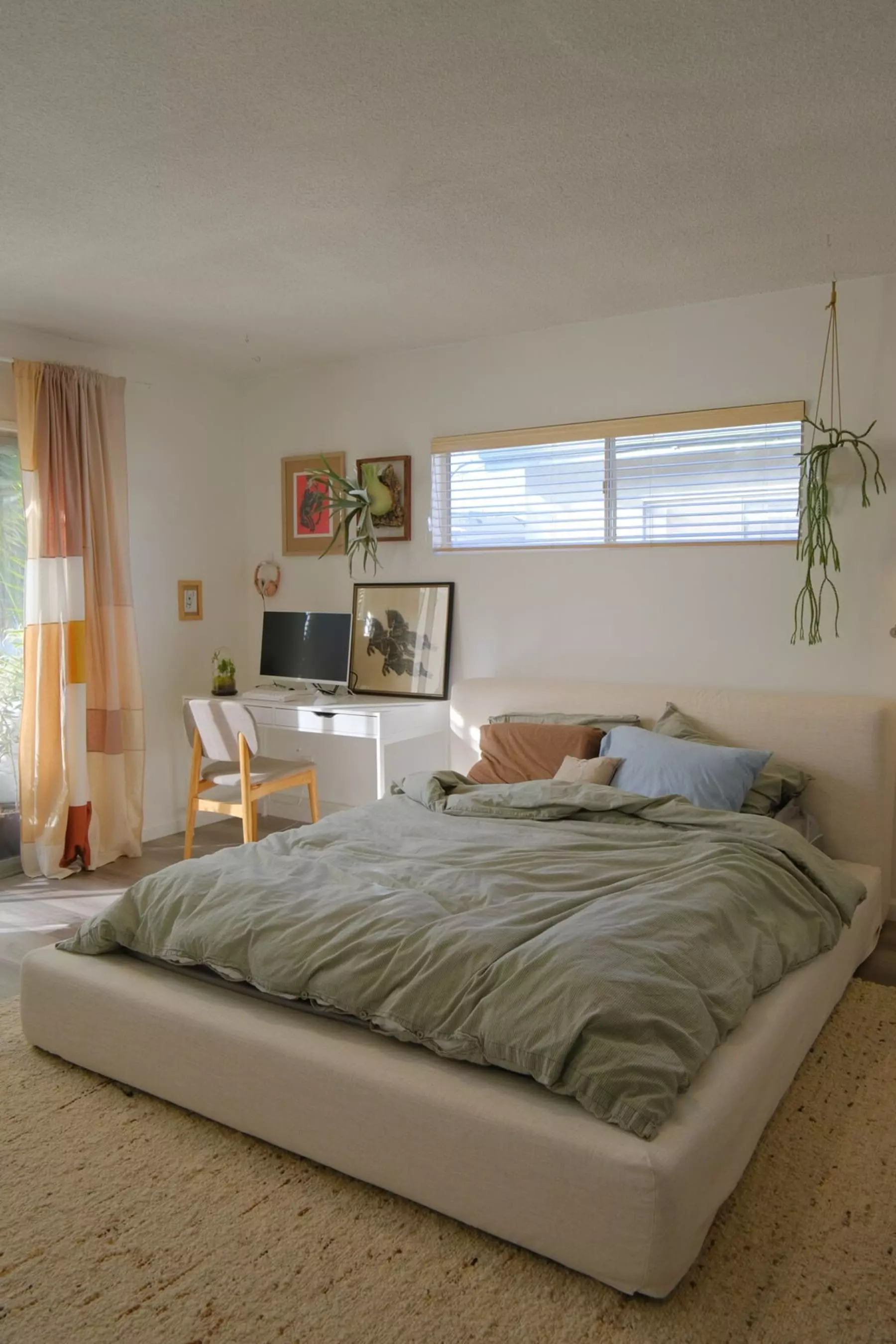The art of Feng Shui has been around for centuries, offering balance and harmony in our living spaces. When it comes to our homes, the bedroom holds a special place where we rest and recharge. If you're looking to enhance the energy flow and create a sanctuary of peace, here are some essential Feng Shui dos and don'ts to consider.
The Essence of Feng Shui
Feng Shui, meaning 'wind water' in Chinese, seeks to bring balance and harmony to our living spaces. It centers around the belief that energy, known as chi, influences our lives. By arranging our bedroom to optimize chi flow, such as through color, furniture placement, and natural elements, we can create an environment that supports health, wealth, and happiness.
Why Follow Feng Shui Bedroom Rules?
Some may dismiss Feng Shui as a gimmick, but many have experienced its positive impact on sleep quality and overall well-being. Here's why paying attention to Feng Shui in the bedroom is worthwhile:
Promotes Restful Sleep
The layout and arrangement of your bedroom can greatly impact the quality of your sleep. Following Feng Shui principles helps create a peaceful, soothing atmosphere conducive to restful sleep.
Improves Health
A well-designed bedroom can enhance your physical and emotional health. By reducing stress levels, improving air quality, and promoting restful sleep, Feng Shui principles contribute to overall well-being.
Reduces Anxiety
A cluttered and disorganized bedroom can create a sense of chaos and anxiety. By decluttering and organizing your space, you can promote a calm environment that reduces stress and anxiety.
Boosts Energy Levels
Feng Shui rules can optimize positive energy flow in your bedroom, elevating your mood, increasing energy levels, and promoting vitality. Simple changes like adjusting the position of your bed and furniture can help balance the chi.
Feng Shui Bedroom Layout
An ideal Feng Shui bedroom layout places the bed against a solid wall, diagonally across from the door. This arrangement provides a clear view of the door, fostering a sense of safety and security. Here's an example of what an ideal Feng Shui bedroom layout would look like:

Feng Shui Bedroom Rules: Dos
-
Lean Your Bed Against a Wall: In Feng Shui, the bed holds great significance. Leaning it against a sturdy wall promotes stability and a sense of grounding, ensuring restful sleep.
-
Use a Headboard: A solid headboard provides stability and support, creating a grounded feeling. Choose one made from wood, metal, or upholstered fabric for added stability.
 Image: @benji_plant's Dawson Bed creates a cozy bedroom oasis. Also pictured, the Kelsey Chair.
Image: @benji_plant's Dawson Bed creates a cozy bedroom oasis. Also pictured, the Kelsey Chair.
-
Balance Your Space with Nightstands: Invest in nightstands for each side of the bed if space permits. They anchor the energy of the bed, creating a grounding effect. Use the surface space to incorporate Feng Shui elements like plants and crystals.
-
Choose Soothing Colors: Opt for calming colors like soft blues, greens, and grays. Neutral and earthy tones also contribute to a peaceful environment, promoting better sleep. Apply these colors to your walls, bedding, or decor.
-
Use Soft Lighting: Harsh lighting can disrupt sleep. Create a relaxing atmosphere with soft, ambient lighting. Lamps and dimmer switches allow for personalized adjustment. Soft lighting reduces stress levels and enhances relaxation.
-
Incorporate Natural Elements: Bring nature indoors with plants, natural fabrics, and materials like wood and stone. They promote tranquility and calmness, fostering a connection with the outdoors.
-
Keep Work Life Separate: Avoid keeping work-related items in your bedroom. Separating work from rest and relaxation helps create a stress-free environment. If possible, find a dedicated workspace outside the bedroom.
-
Keep Exercise Equipment Out: Exercise equipment in the bedroom can create a sense of heaviness and clutter. It disrupts the calm and cool energy desired in this space. Move exercise equipment to another area of your home.
Feng Shui Bedroom Rules: Don'ts
-
Don't Place Mirrors Facing the Bed: Mirrors reflect and amplify energy, which can disrupt sleep. Avoid placing mirrors that directly face the bed. If you must have a mirror, position it out of sight or in a location where it cannot reflect the bed.
-
Don't Position Your Bed in Direct Line with the Door: Direct alignment between the bed and the door is known as the 'Death Position'. It creates vulnerability and restlessness. Place your bed diagonally to the door for safety, security, and balanced energy flow.
-
Don't Position Your Bed Below Beams or Air Conditioners: Beams and air conditioners overhead create discomfort and pressure. Move the bed away from beams, or use canopies and drapes to soften their impact. Direct airflow from air conditioners away from the bed.
-
Don't Clutter Your Bedroom: Clutter obstructs energy flow and creates stagnant energy. Keep a tidy and organized space to maintain the harmonious flow of chi. Avoid storing items under the bed.
-
Avoid Placing Electronics in Your Bedroom: Electronics emit disruptive electromagnetic radiation. Keep them out of the bedroom, including mobile phones. Shielding devices can be used if necessary, but creating a technology-free environment promotes peaceful and restful sleep.
-
Don't Place Sharp Objects in the Bedroom: Sharp objects such as knives and plants with sharp leaves create tension and discomfort. Keep them out of plain sight or store them in your dresser or wardrobe.
-
Avoid Busy Patterns: Overstimulation can hinder relaxation and sleep quality. Choose simple, calming patterns and colors for your bedding and decor to create a peaceful environment.
-
Avoid Water Fountains or Artworks of Water: While water elements are generally favorable, it's best to avoid them in the bedroom. Too much water in this space can wash away warmth and create worry in the energy. Maintain a balance by incorporating water elements in other areas of your home.
Feng Shui principles offer a holistic approach to designing a harmonious and balanced bedroom. Customize these guidelines to suit your needs and preferences. By embracing Feng Shui, you can create a peaceful and relaxing environment that promotes restful sleep and positive energy flow.











